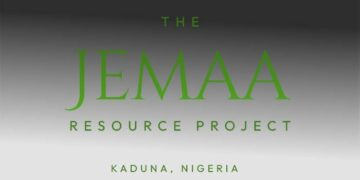In today’s interconnected world, financial crime is no longer the exclusive headache of banks and traditional financial institutions. The explosion of digital services, fintech platforms, real estate transactions, cryptocurrency trading, and even casinos has broadened the battlefield. And on that battlefield, Anti-Money Laundering (AML) training has emerged as one of the most critical weapons institutions can wield.
AML training is not just a compliance requirement—it’s a cornerstone of operational integrity and a vital investment in institutional resilience. Whether in Nigeria, the United States, or Canada, the cost of failing to understand and address financial crime is simply too high.
Why AML Training Matters—Now More Than Ever
The sophistication of money laundering techniques has grown at an alarming rate. Criminals are leveraging everything from shell companies and cross-border transfers to cryptocurrencies and real estate deals to obscure the origins of illicit funds.
In Nigeria, the Economic and Financial Crimes Commission (EFCC) has recorded a growing number of money laundering cases involving both financial institutions and non-financial businesses, such as law firms, construction companies, and even luxury car dealerships. In 2023, the EFCC secured over 3,700 convictions for various financial crimes, many of which were linked to money laundering.
Meanwhile, in the United States, the Financial Crimes Enforcement Network (FinCEN) continues to roll out stricter AML guidelines following the enactment of the Anti-Money Laundering Act of 2020 and the Corporate Transparency Act of 2021. These laws expand due diligence requirements and increase the need for internal controls—including staff training—to detect and report suspicious activities.
In Canada, the Financial Transactions and Reports Analysis Centre of Canada (FINTRAC) enforces AML regulations and has significantly increased its supervisory efforts in recent years. In 2022, FINTRAC issued a $1.3 million fine to a Canadian cryptocurrency exchange for non-compliance with AML requirements, including inadequate training. Additionally, Canada’s AML/ATF Regime mandates that reporting entities—including real estate brokers, casinos, accountants, and money service businesses—provide ongoing training to employees on identifying and reporting suspicious transactions. In provinces like British Columbia, where real estate has become a conduit for illicit money, the Cullen Commission Report (2022) called for enhanced AML training as a central tool in curbing money laundering through property deals.
Who Needs AML Training?
It’s a common misconception that AML training is only essential for banks. Today, AML regulations touch a wide range of sectors, including:
- Fintech companies
- Insurance providers
- Law and accounting firms
- Real estate agencies
- Cryptocurrency platforms
- Casinos and gaming businesses
- Logistics and trade-related businesses
In Nigeria, the Special Control Unit against Money Laundering (SCUML), under the Federal Ministry of Industry, Trade and Investment, requires Designated Non-Financial Businesses and Professions (DNFBPs) to register and comply with AML obligations. That includes undergoing periodic AML training.
Failure to comply—whether through ignorance or oversight—can lead to hefty fines, legal battles, reputational damage, and even license revocation.
Continuous Training: Staying Ahead of Evolving Threats
AML compliance is not a one-off checklist—it’s an ongoing process. Criminal tactics are constantly evolving, and so must the knowledge and vigilance of staff. Continuous AML training helps institutions:
Stay Compliant with Changing Regulations
Regulatory bodies often update AML requirements. For instance, in 2024, the U.S. updated beneficial ownership reporting standards, while Nigeria revised SCUML compliance deadlines. Regular training ensures employees remain up-to-date.
Canada’s AML landscape is also evolving. As of 2024, amendments to the Proceeds of Crime (Money Laundering) and Terrorist Financing Act require more stringent recordkeeping and training obligations, particularly for sectors like mortgage lending and payment service providers. FINTRAC has emphasized the importance of demonstrating that training programs are up-to-date and tailored to the risks of each business sector.
Recognize Red Flags Early
Trained staff are more likely to spot suspicious behavior, such as unusual transaction patterns, inconsistent customer information, or attempts to avoid record-keeping.
Promote a Culture of Compliance
When staff—from junior officers to senior executives—understand the importance of AML, it reinforces a risk-aware and ethical organizational culture.
Improve Reporting Accuracy and Timeliness
Training enables employees to file Suspicious Activity Reports (SARs) or Suspicious Transaction Reports (STRs) effectively, reducing the risk of missed opportunities to disrupt financial crime.
Limit Legal and Financial Exposure
Institutions that can demonstrate proactive AML training efforts are more likely to receive leniency from regulators in the event of a breach.
In Nigeria, the Central Bank of Nigeria (CBN) has made AML training a requirement for all financial institutions under its supervision. The 2022 CBN AML/CFT Compliance Guidelines emphasize the need for risk-based training tailored to an institution’s exposure. SCUML also mandates training for all DNFBPs, a rule many Nigerian SMEs remain unaware of—making them easy targets for criminal exploitation.
In the United States, FinCEN’s AML priorities include cybercrime, terrorism financing, and corruption—all of which require nuanced understanding by front-line staff. U.S. institutions are expected to provide tailored, role-specific training that evolves with emerging threats. FinCEN has also increased expectations around documentation and effectiveness, rather than just the existence of training programs.
Canadian institutions are also under increasing scrutiny. FINTRAC conducts regular audits, and in its latest 2023 compliance report, it noted several deficiencies in AML training programs across businesses in Quebec and Ontario. Canadian regulators have stressed that training should not only be frequent but also demonstrate that staff can apply knowledge in real-world scenarios.
Making AML Training Effective
An effective AML training program isn’t just a PowerPoint presentation once a year. Here’s what a strong program looks like:
- Tailored Content: Different departments face different risks. Frontline staff need training on customer onboarding and KYC procedures, while executives may need deep dives into governance and accountability.
- Interactive and Scenario-Based Learning: Real-world case studies, quizzes, and simulations make learning practical and memorable.
- Regular Refreshers: Quarterly or semi-annual updates help keep compliance knowledge fresh.
- Accessible Formats: Online modules, mobile-friendly platforms, and in-person workshops can cater to different learning preferences.
AML Training as an Institutional Imperative
In Nigeria, the U.S., and Canada, AML training is more than a regulatory checkbox—it’s a strategic imperative. Institutions that treat it as a core part of their operations position themselves as trustworthy, compliant, and resilient in the face of growing financial crime.
For financial and non-financial organizations alike, the question isn’t whether AML training is necessary, but whether it’s happening often enough, effectively enough, and with the right people in mind.
As money launderers continue to innovate, so too must the institutions committed to stopping them.





